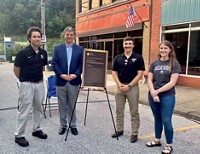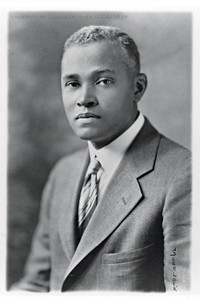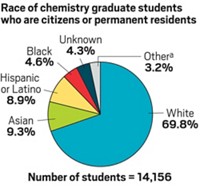Advertisement
Grab your lab coat. Let's get started
Welcome!
Welcome!
Create an account below to get 6 C&EN articles per month, receive newsletters and more - all free.
It seems this is your first time logging in online. Please enter the following information to continue.
As an ACS member you automatically get access to this site. All we need is few more details to create your reading experience.
Not you? Sign in with a different account.
Not you? Sign in with a different account.
ERROR 1
ERROR 1
ERROR 2
ERROR 2
ERROR 2
ERROR 2
ERROR 2
Password and Confirm password must match.
If you have an ACS member number, please enter it here so we can link this account to your membership. (optional)
ERROR 2
ACS values your privacy. By submitting your information, you are gaining access to C&EN and subscribing to our weekly newsletter. We use the information you provide to make your reading experience better, and we will never sell your data to third party members.
People
Mellon Institute Named Chemical Landmark
Nonprofit laboratory accelerated industrial research in the U.S.
by Linda Wang
May 6, 2013
| A version of this story appeared in
Volume 91, Issue 18

The American Chemical Society designated the Mellon Institute of Industrial Research as a National Historic Chemical Landmark. A ceremony on March 28 at Carnegie Mellon University (CMU), in Pittsburgh, marked the occasion. The event took place in the building that once housed the Mellon Institute, which merged with the Carnegie Institute of Technology in 1967 to form CMU.
ACS President-Elect Thomas J. Barton presented a commemorative plaque to Mark Kamlet, CMU provost and executive vice president, and recognized the institute for its role in creating the scientific advances that established major industries and helped small businesses benefit from science.
“The Mellon Institute formalized the relationship between the scientific research of the university and the applied technology of the factory at a time when such connections were weak in America,” Barton said. “Through the results of pioneering research of Mellon Institute fellows, American industry realized the practical benefits of science to develop new products, grow companies, and solve essential problems.”
“The Mellon Institute was founded to connect research with industry, a concept that is as important today as it was 100 years ago,” Kamlet said, noting that CMU is still engaging in scientific entrepreneurship. A panel discussion on scientific entrepreneurship followed the award presentation.
Brothers Andrew W. and Richard B. Mellon founded the Mellon Institute of Industrial Research & School of Specific Industries a century ago; its name was shortened to the Mellon Institute in 1962.
The new institute offered “an infrastructure that provided a lot of the basic needs for a research project, such as a library, a machine shop, a glass shop, a means to bring chemicals into the building,” Guy C. Berry, who joined the institute in 1957, tells C&EN. “You had a place to do research.”
At the time the institute was founded, very little industrial research was being done in the U.S., according to Berry, University Professor Emeritus at CMU.
The institute brought scientists sponsored by both large and small companies under one roof to conduct applied research that would benefit industry. By bringing scientists together, Berry adds, the site enabled them to share knowledge—stimulating more innovation.
Through its fellowship program, the institute trained more than 1,000 scientists cosponsored by more than 100 companies. Developments by Mellon Institute Fellows Rob R. McGregor, John Speier, Earl L. Warrick, and others led to key advances in the field of organosilicon chemistry and to the creation of Dow Corning, Kamlet noted. Inventions that came out of research at the Mellon Institute include silicone rubber and cellulose hot dog casings.

By the late 1950s, most major corporations were conducting research on their own, partly because of the success of Mellon Institute at promoting the benefits of such research. Mellon Institute then began conducting some of its own research, funded in part by the U.S. government. This activity continued until Mellon Institute merged with Carnegie Institute of Technology.
The idea of bridging academia and industry continues today. “In the past decade, there has been more and more interest among faculty in developing entrepreneurial activities,” Berry says. “To my mind, that’s exactly what was going on in the early institute: people with science knowledge helping to develop industrial activity.”
ACS initiated the chemical landmarks program in 1992 to enhance public appreciation for the contributions of the chemical sciences to modern life and to encourage a sense of pride in the practitioners.
The program has awarded landmark status to more than 70 places, discoveries, and achievements in the history of chemical science and technology. Other advances recognized through this program include the first synthetic plastic, the discovery of penicillin, and the development of Tide laundry detergent. For more information about the program, visit www.acs.org/landmarks.





Join the conversation
Contact the reporter
Submit a Letter to the Editor for publication
Engage with us on Twitter